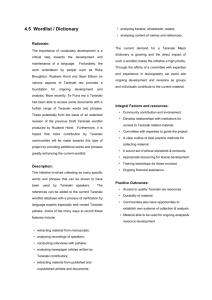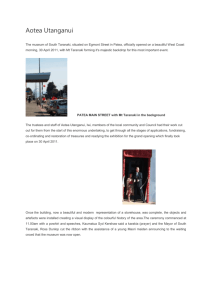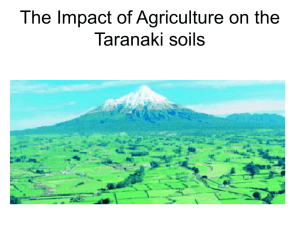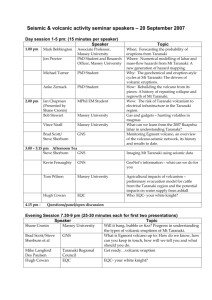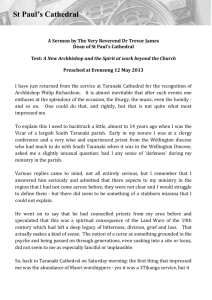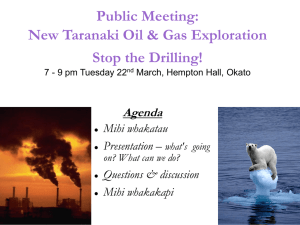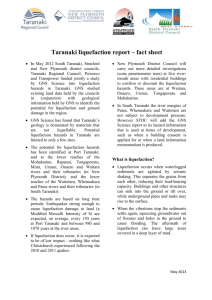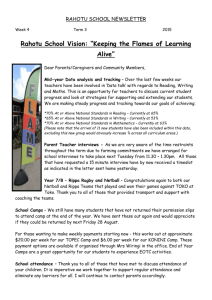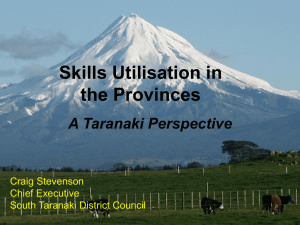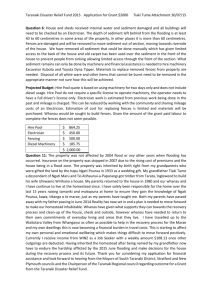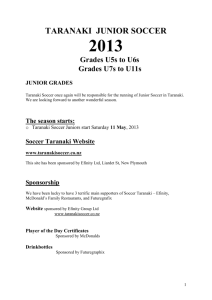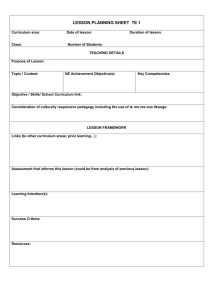Analysis of Manuscript
advertisement
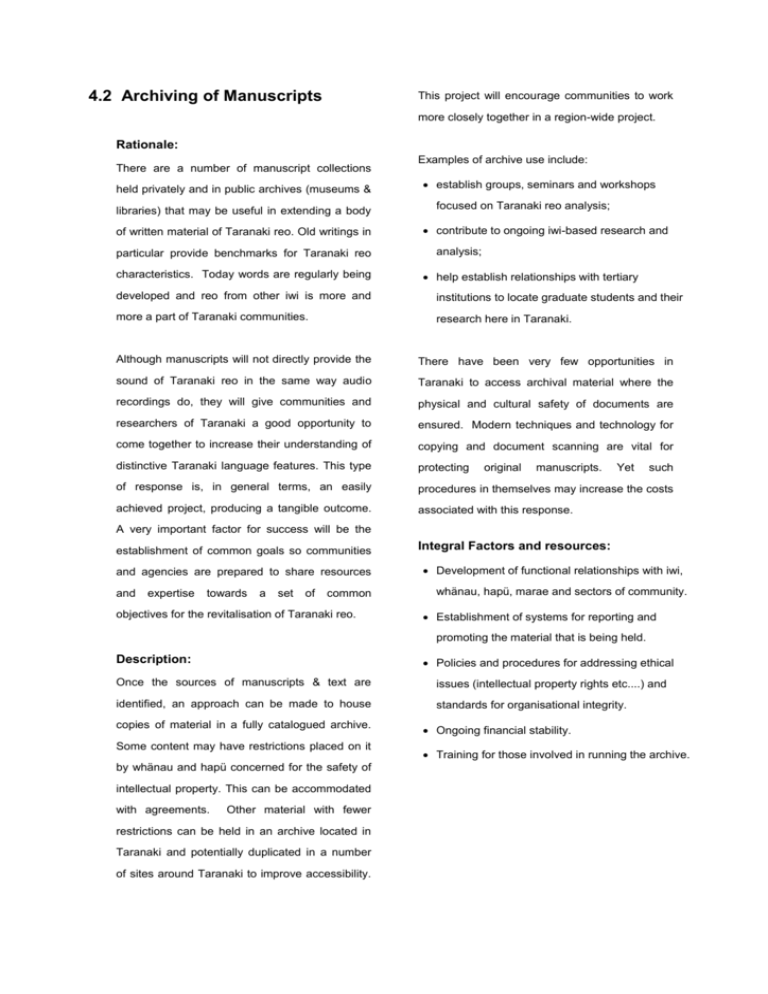
4.2 Archiving of Manuscripts This project will encourage communities to work more closely together in a region-wide project. Rationale: There are a number of manuscript collections held privately and in public archives (museums & libraries) that may be useful in extending a body of written material of Taranaki reo. Old writings in particular provide benchmarks for Taranaki reo characteristics. Today words are regularly being Examples of archive use include: establish groups, seminars and workshops focused on Taranaki reo analysis; contribute to ongoing iwi-based research and analysis; help establish relationships with tertiary developed and reo from other iwi is more and institutions to locate graduate students and their more a part of Taranaki communities. research here in Taranaki. Although manuscripts will not directly provide the There have been very few opportunities in sound of Taranaki reo in the same way audio Taranaki to access archival material where the recordings do, they will give communities and physical and cultural safety of documents are researchers of Taranaki a good opportunity to ensured. Modern techniques and technology for come together to increase their understanding of copying and document scanning are vital for distinctive Taranaki language features. This type protecting of response is, in general terms, an easily procedures in themselves may increase the costs achieved project, producing a tangible outcome. associated with this response. original manuscripts. Yet such A very important factor for success will be the establishment of common goals so communities and agencies are prepared to share resources and expertise towards a set of common objectives for the revitalisation of Taranaki reo. Integral Factors and resources: Development of functional relationships with iwi, whänau, hapü, marae and sectors of community. Establishment of systems for reporting and promoting the material that is being held. Description: Policies and procedures for addressing ethical Once the sources of manuscripts & text are issues (intellectual property rights etc....) and identified, an approach can be made to house standards for organisational integrity. copies of material in a fully catalogued archive. Some content may have restrictions placed on it by whänau and hapü concerned for the safety of intellectual property. This can be accommodated with agreements. Other material with fewer restrictions can be held in an archive located in Taranaki and potentially duplicated in a number of sites around Taranaki to improve accessibility. Ongoing financial stability. Training for those involved in running the archive. Positive Outcomes: Better access to reo-based archives. Development of a higher profile for Taranaki reo. Increased body of material through ongoing production of resources and reo analysis. Heightened discussion & debate on Taranaki reo. Possible risks: Difficulty in responding to all concerns from community to gain support for an archive. Material becomes scattered through the district and people become complacent about its importance. Goals for establishing working groups do not eventuate and there is no ongoing analysis. Lack of financial support for the project. High costs of housing & security of material. Institutions and State-based archives are not willing to pursue a relationship or to contribute. Your Views:
